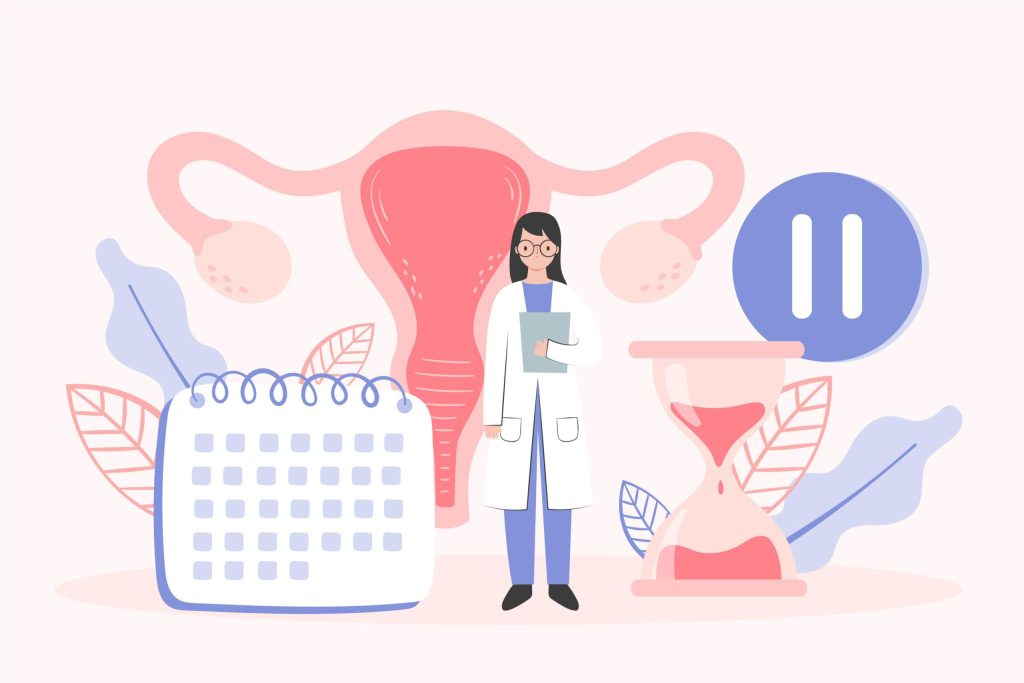Menopause

Menopause is a natural biological process marking the end of a woman’s reproductive years. It typically occurs in the late 40s to early 50s and is characterized by the cessation of menstrual periods. While menopause is a normal part of aging, it can bring about various symptoms that impact a woman’s physical and emotional well-being. Understanding the symptoms and available treatments is essential for managing this transition effectively.
Common Symptoms of Menopause: Menopausal symptoms can vary widely among women but may include:
- Hot flashes: Sudden sensations of heat, often accompanied by sweating and flushing of the face and neck.
- Night sweats: Episodes of excessive sweating during sleep, which may disrupt sleep patterns.
- Vaginal dryness: Reduced moisture and lubrication in the vaginal area, leading to discomfort and pain during intercourse.
- Mood changes: Mood swings, irritability, anxiety, or depression are common during menopause.
- Sleep disturbances: Difficulty falling asleep or staying asleep, often due to night sweats or hormonal fluctuations.
- Changes in libido: Decreased sex drive or changes in sexual desire and response.
- Bone density loss: Decreased estrogen levels during menopause can lead to bone loss and increase the risk of osteoporosis.
Common Treatments for Menopause:
Hormone Replacement Therapy (HRT): HRT involves taking estrogen and, in some cases, progesterone to replace the hormones that decline during menopause. This can alleviate symptoms such as hot flashes, vaginal dryness, and mood swings. However, HRT is not suitable for everyone and may carry certain risks, so it’s essential to discuss the potential benefits and risks with a healthcare provider.
Non-Hormonal Medications: Certain medications, such as selective serotonin reuptake inhibitors (SSRIs) and selective norepinephrine reuptake inhibitors (SNRIs), originally used to treat depression and anxiety, have been found to effectively reduce hot flashes in some women. Other non-hormonal options include gabapentin and clonidine.
Vaginal Estrogen Therapy: For women experiencing vaginal dryness and discomfort during intercourse, vaginal estrogen therapy in the form of creams, tablets, or rings can help restore moisture and elasticity to the vaginal tissues.
Lifestyle Modifications: Making lifestyle changes such as maintaining a healthy diet, regular exercise, stress management techniques, and adequate sleep can help alleviate menopausal symptoms. Avoiding triggers such as caffeine, spicy foods, and alcohol may also reduce the frequency and severity of hot flashes.
Bone Health Strategies: To prevent bone loss and reduce the risk of osteoporosis, women going through menopause are encouraged to increase their intake of calcium and vitamin D through diet and supplements, as well as engage in weight-bearing exercises such as walking, jogging, or resistance training.


